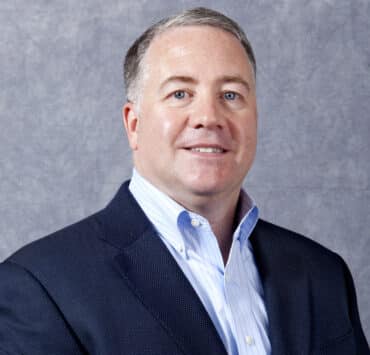Although it helped McDonald’s invent its legendary Big Mac sauce, Golden State Foods (GSF) has a secret sauce all its own, according to senior vice president, chief corporate social responsibility officer, and chief legal officer John Page: its company creed and values.
“We have a belief system that’s based on the golden rule,” says Page, who joined the food-service supplier in 2004 after a 14-year career in commercial litigation and transactional law. “In the nine years I’ve been here, that’s the filter we’ve used for everything we do. It’s that filter that’s allowed us to flourish.”
GSF’s creed begins, “We believe in God and the dignity of all people,” and states, “Our success is dependent upon the success of our customers.” The company’s values, meanwhile, include treating others as you would want to be treated and giving customers a fair deal—which indicates “community” more than “corporation.”
That’s what attracted Page in the first place. Born and bred in Brooklyn, New York, he was raised in public housing by a single mother who relied on government assistance. “I recall going to the store and having to use food stamps to buy groceries; even to this day, that’s seared into my mind,” he says. “It’s not unlike many other stories today, but it’s one that taught me very early on the value of hard work and good ethics.”
Even when Page decided to go to law school, his motivation wasn’t money or prestige. It was public service, inspired by his humble roots. “I went to law school with the idea of giving back,” says Page, who graduated from the University of Pennsylvania Law School in 1990 and ultimately decided to pursue a career in corporate law. “I learned that you didn’t have to be a public interest lawyer to be of service; I could work for corporations and be a contributor, too.”
That’s especially true at GSF, where business ethics are synonymous with business strategy. “Our values help the bottom line,” insists Page, who cites the company’s longstanding relationships with quick-service restaurant chains like McDonald’s, for which it supplies and distributes condiments, beef patties, and buns. “For some of the entities we do business with, our values are a substantial contributing factor in their decision to do business with us.”
In fact, the trend toward corporate social responsibility means companies inside and outside the food-service industry are increasingly choosing vendors and suppliers based not only on product mix and price, but also on principles. That’s one of many factors fueling explosive growth at GSF, which has grown from approximately $2.7 billion in annual revenues in 2004 to nearly $6 billion in annual revenues in 2013.
“Our creed says we value the success of our customers; our success is derived from their success,” explains Page, who says growth at GSF includes not only new business from new clients, but additional business from current ones, many of which have rewarded GSF’s strong service with increased volume, expanded territories, and new categories of business. “We’ve been fortunate enough to have clients like Starbucks and Chick-fil-A that have had huge growth spurts; when they grow, we grow with them.”
As GSF’s general counsel, Page facilitates a lot of that growth, much of which is achieved through acquisitions. In the last year alone, GSF has made three such acquisitions to increase its processing and distribution capabilities. One of them—a food-processing plant in China—positions GSF to be a significant partner to McDonald’s as it grows its Chinese footprint.
Again, GSF’s creed and values play an active role. When it’s considering acquisition targets, the company looks for entities that share its values. During post-acquisition integration, the company introduces acquired personnel to the company creed and actively infuses it into the acquired entity’s culture. The creed even influences legal and financial negotiations.
“When we’re sitting across the table from someone, we look for the fair approach,” Page says. “That doesn’t mean we roll over, but that we develop a plan and we stick to it. We justify all our rationale and all our reasons. We don’t engage in gamesmanship.”
Another opportunity worth mentioning is sustainability: As regulators pay more attention to food safety, and consumers food quality, environmental stewardship becomes an important differentiator. Page oversees GSF’s green initiatives, including efforts to reduce carbon emissions, minimize energy and water consumption, and limit waste production. GSF recently commenced construction on a LEED-certified expansion of its food distribution facility in McCook, Illinois, and completed a 45,000-square-foot expansion of its food distribution facility in Whitewater, Wisconsin, which features daylighting, high-efficiency refrigeration, and locally sourced building materials.
In addition to increasing its capacity to serve clients in those regions, such expansions further GSF’s mission, resulting simultaneously in growth and goodwill. Concludes Page: “Everything we do, we do purposefully and profitably.”

